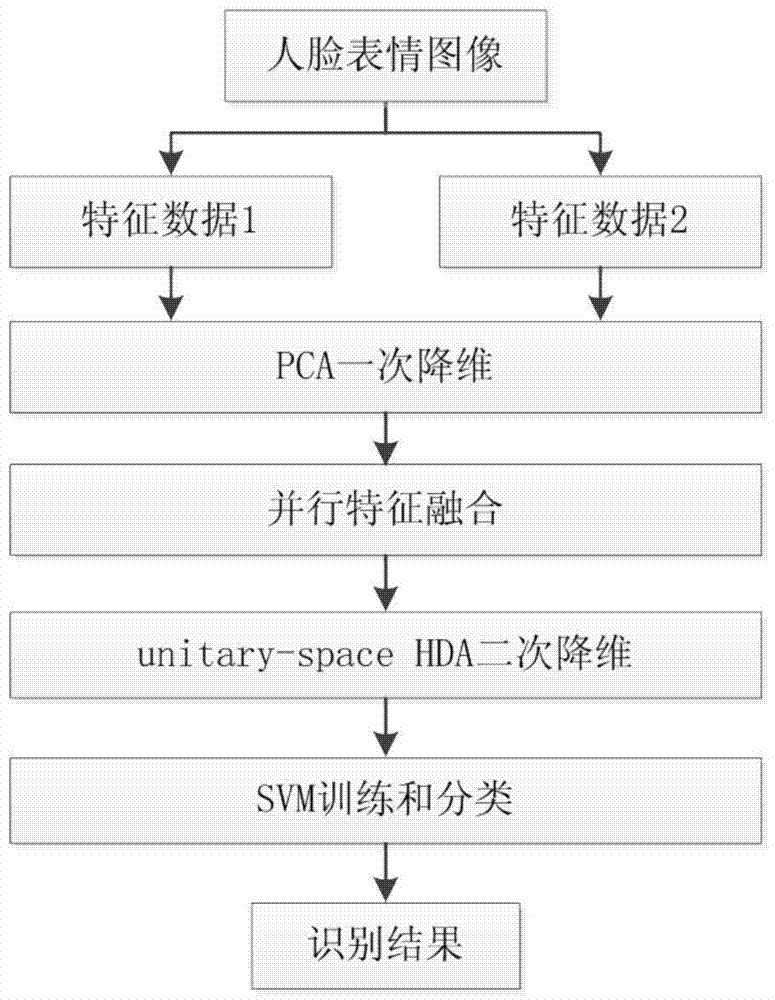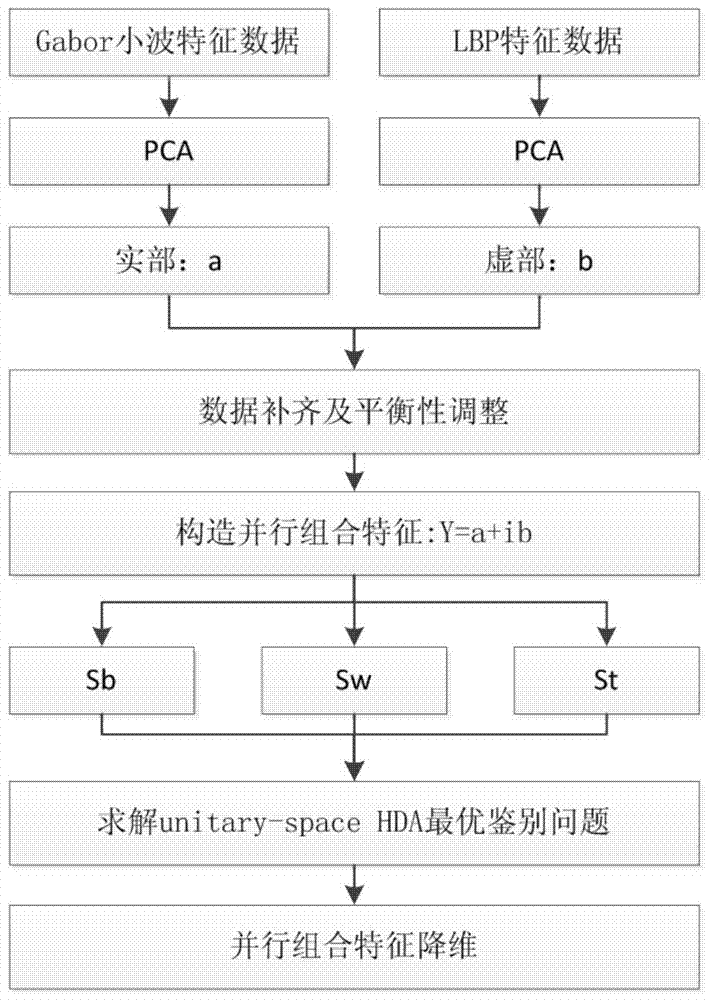A Facial Expression Recognition Method Based on Two-step Dimensionality Reduction and Parallel Feature Fusion
A facial expression recognition and feature fusion technology, applied in the field of facial expression recognition, can solve the problem of dimensional disaster, affecting the solution of dimensionality reduction projection axis, deepening matrix singularity, etc., to achieve the effect of improving the recognition rate
- Summary
- Abstract
- Description
- Claims
- Application Information
AI Technical Summary
Problems solved by technology
Method used
Image
Examples
Embodiment Construction
[0024] The specific implementation of the present invention will be further described in detail below in conjunction with the accompanying drawings.
[0025] The basic idea of this method is as follows: firstly, image preprocessing is performed on the facial expression image and multi-feature extraction is performed by using two feature extraction methods; then, the real and imaginary parts of the complex vector are respectively specified by using the parallel feature fusion mechanism to form Combine features in parallel. Considering that the parallel combination of features usually has a problem of high dimensionality, the above-mentioned problem is solved by adopting two-step dimensionality reduction. (1) The first step of dimensionality reduction: first, PCA is used to perform dimensionality reduction on the two types of feature data in the real number field, and the dimensionality reduction and the number of principal components are determined by the contribution rate of...
PUM
 Login to View More
Login to View More Abstract
Description
Claims
Application Information
 Login to View More
Login to View More - R&D
- Intellectual Property
- Life Sciences
- Materials
- Tech Scout
- Unparalleled Data Quality
- Higher Quality Content
- 60% Fewer Hallucinations
Browse by: Latest US Patents, China's latest patents, Technical Efficacy Thesaurus, Application Domain, Technology Topic, Popular Technical Reports.
© 2025 PatSnap. All rights reserved.Legal|Privacy policy|Modern Slavery Act Transparency Statement|Sitemap|About US| Contact US: help@patsnap.com



